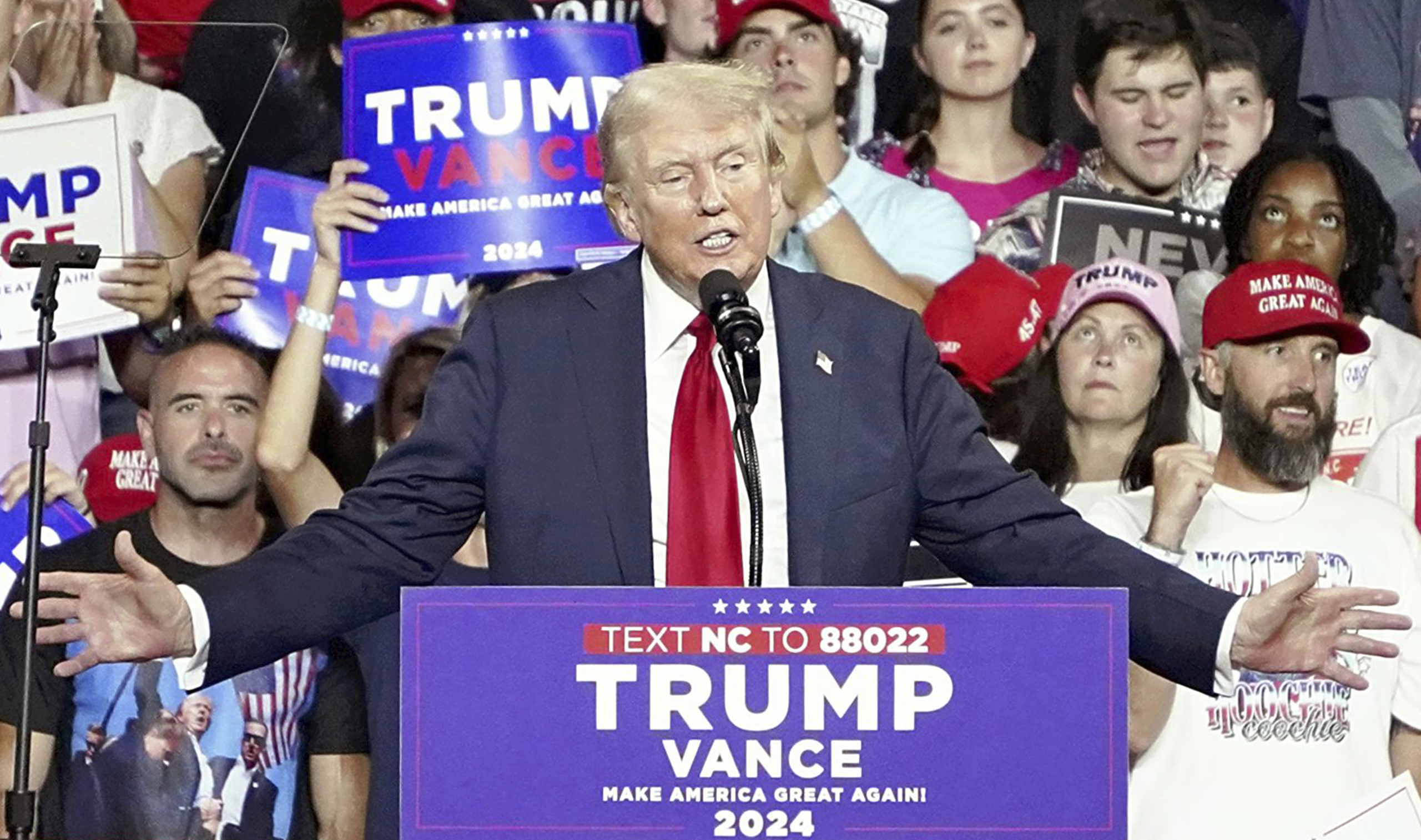Sign up for The Media Today, CJR’s daily newsletter.
On Monday evening, at twelve minutes past 9pm local time in Chicago, the National Association of Black Journalists sent out an email, marked with a red square in the subject line to help it stand out in inboxes, informing the general membership that its annual convention would have a special guest speaker on Wednesday at noon: Donald Trump.
“My reaction was, Wait, this can’t be real. This has to be a joke,” Femi Redwood, NABJ’s LGBTQ+ task force chair, told CJR. She has since been fielding messages from members of the task force expressing their confusion and dismay.
On Tuesday, the reaction spread quickly. Karen Attiah, a Washington Post columnist, announced on X that she was stepping down as this year’s NABJ conference co-chair. “To the journalists interviewing Trump, I wish them the best of luck,” she posted.
Others took a different view. “Some of the best journalists in the country are members of NABJ. So, why wouldn’t they interview Trump?… Seems like the journalists complaining don’t understand their jobs are to actually ask the questions,” wrote Symone D. Sanders Townsend, cohost of the MSNBC show The Weekend. “NABJ didn’t platform Trump. The voters in the Republican primary did.”
“As journalists we can never be afraid to tackle Trump,” journalist Jemele Hill said, also on X. In a separate posting she added: “I do think we might overestimate how much people know about what he plans to do in office.”
These defenses of Trump’s attendance missed a larger point, said Ernest Owens, a journalist and president of the Philadelphia Association of Black Journalists. In the past, he pointed out, NABJ has been critical of Trump’s treatment of Black journalists and the press and has given a “thumbs down” award to Fox News.
“As an advocacy organization, you don’t have to act like a newsroom, you can take a stance,” Owens told CJR. “For them to now weaponize journalism ethics to defend this circus, as an advocacy organization that does not have to do this, is irresponsible and intellectually dishonest.”
“I fully understand that journalists interview vile people as part of the job, but a conference is not intended to be a regular day on the job,” wrote Jenée Desmond-Harris, a writer and editor at Slate. “You’re not there for your beat.”
“It was always billed to me as a family reunion,” Redwood said of the annual conference. “It’s the place you can come where you don’t have to explain certain things you have to explain in a newsroom.” She said the gathering has always striven to be a safe space for Black journalists to develop skills, meet hiring managers, and expand their networks. “The question I would ask the organization is, ‘How does this align with any of those things?’” she said.
Many others voiced their discontent online. April Ryan, The Grio’s White House correspondent and an MSNBC contributor, posted, “To have a presumed orchestrated session with the former president is an affront to what this organization stands for and a slap in the face to the Black women journalists (NABJ journalists of the year) who had to protect themselves from the wrath of this Republican presidential nominee.”
Keith Boykin, an author and former White House aide, shared a video to X that included moments in which Trump insulted various Black journalists. The former president can be seen calling journalist April Ryan a “loser,” describing Don Lemon as the “stupidest man on television,” and accusing Yamiche Alcindor of asking racist questions. Boykin wondered whether the panel would ask Trump about these moments—and accused one of the journalists interviewing Trump, Fox News anchor Harris Faulkner, of being “in the tank for Trump.” Faulkner will moderate alongside ABC News congressional correspondent Rachel Scott and Semafor political reporter Kadia Goba.
NABJ president Ken Lemon released a statement on Monday after the announcement: “While NABJ does not endorse political candidates as a journalism organization, we understand the serious work of our members, and welcome the opportunity for them to ask the tough questions that will provide the truthful answers Black Americans want and need to know.”
Owens feels that the NABJ was merely seeking spectacle. “There is this very messy opportunity—one Trump, desperate to try to get in the face of Black people, and [the other] NABJ, thirsty for some level of relevance—and so the two interests kind of, in a very weird, bizarre way, align,” he said.
Update: On Wednesday morning, the NABJ announced that Vice President Kamala Harris will provide a virtual address “post-convention.” Lemon said in a statement that Harris’ campaign initially could not accommodate an in person or virtual appearance at the conference and that NABJ was in contact with her team even before Joe Biden dropped out of the race.
Has America ever needed a media defender more than now? Help us by joining CJR today.



